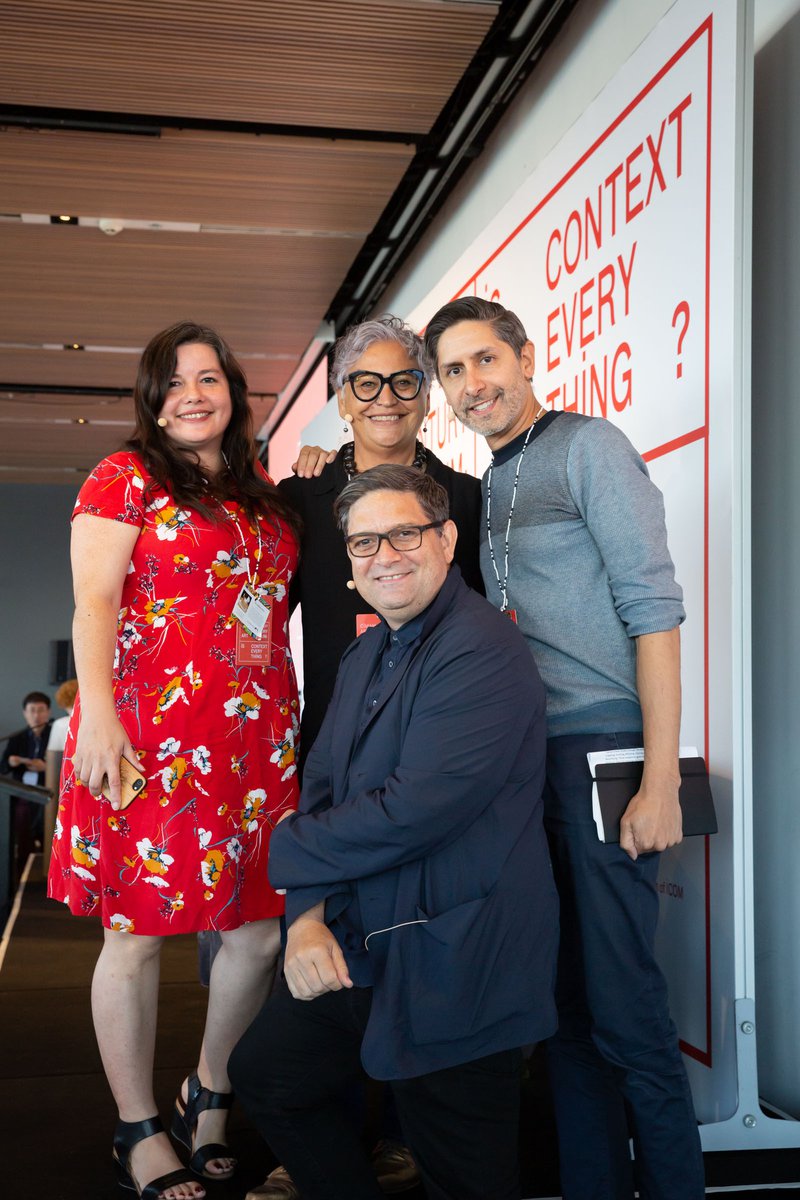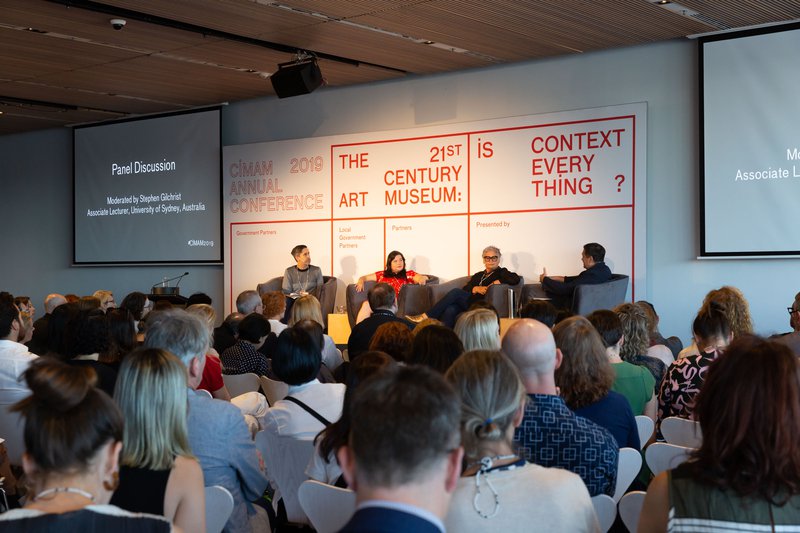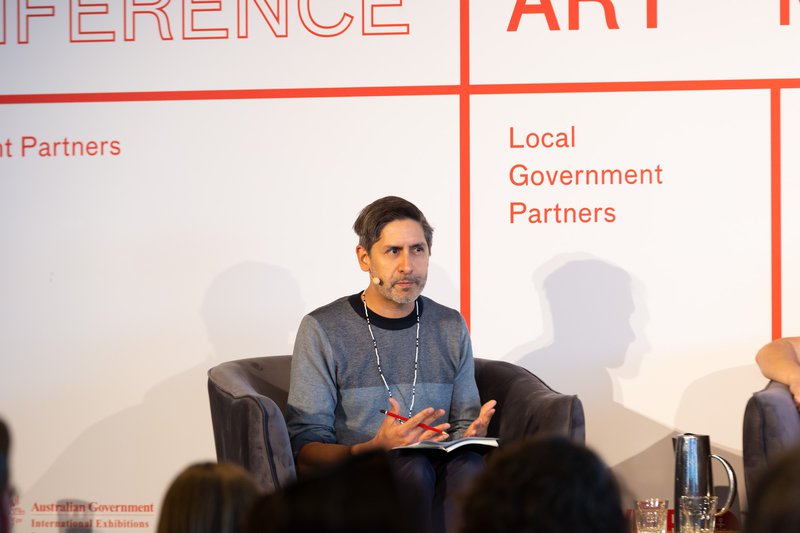Stephen Gilchrist
Panel discussion moderated by Stephen Gilchrist, Associate Lecturer, University of Sydney, Sydney, Australia.
Titled The 21st Century Art Museum: Is Context Everything? the CIMAM 2019 Annual Conference took place 15-17 November in Sydney hosted by the Museum of Contemporary Art Australia.
Day 1: Friday 15 November
Challenging the Narrative: Indigenous Perspectives
Panel Conclusions by Stephen Gilchrist

The panel discussed the ways in which Indigenous sovereignty is both expressed and sometimes delimited within institutions through curatorial practices. Indigenous participation has clearly reshaped art and cultural institutions to better represent Indigenous art and culture, but there is often a tension between recognizing Indigenous value in Indigenous terms within non-Indigenous institutions. The value of Indigenous art cannot be wholly determined by the institution, although the institutionalization of Indigenous art has contributed to registering its value in cross-cultural contexts. We spoke about how Indigenous curators must demonstrate differential systems of value in ways that are culturally resonant and uplifting for Indigenous people. The panel conceded that it can be important for Indigenous art to be included within institutions, but that there is also a power in the margins and being outside the institution.

The panel discussed the relevancy of theories and practices of decolonization and Indigenization, and how they can serve Indigenous communities and museums at the same time. With the renewed urgency around how institutions engage with Indigenous art and culture, it is necessary to be attentive to Indigenous leadership and Indigenous-cantered thinking, both inside and outside the institution. It was observed that Indigenous curators are important, but they must be connected to and not taken away from communities. You can’t have Indigenous art without Indigenous people.
The panel dealt swiftly with the arbitrary distinction between the interpretation of Indigenous art through art history or anthropology, and signaled to the audience the problematics of such a reductive binary. We briefly discussed the recent debates around the definition of a museum but felt that the idea of a universal museum is less important than a museum that is open and conducive to cultural specificity. We spoke about the importance of creating spaces for and not just of Indigeneity. We discussed the different configurations of Indigenous sovereignty in Aotearoa/New Zealand, Canada, and Australia, and how this impacts our communities.
Despite these differences, relationships are our politics and there is a need for more Indigenous gatherings that do not conflate togetherness with sameness.

Stephen Gilchrist's biography
Belonging to the Yamatji people of the Inggarda language group of northwest Western Australia, Stephen Gilchrist is Associate Lecturer of Indigenous Art at the University of Sydney. Before this, he taught at New York University, Sydney. He is a writer and curator who has worked with the Indigenous Australian collections of the National Gallery of Australia, Canberra (2003-2005), the British Museum, London (2008), the National Gallery of Victoria, Melbourne (2005-2010) and the Hood Museum of Art, Dartmouth College (2011-2013). He was a Curatorial Attaché for the 20th Biennale of Sydney under the Artistic Directorship of Dr Stephanie Rosenthal in 2015-16. From 2012-2016, Gilchrist was the Australian Studies Visiting Curator at the Harvard Art Museums, Harvard University (2012-2016) where he curated Everywhen: the eternal present in Indigenous Art from Australia. Gilchrist has curated numerous exhibitions in Australia and the United States and has written extensively on Indigenous Art from Australia.